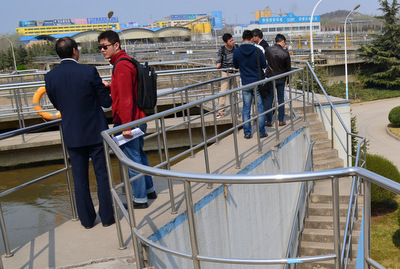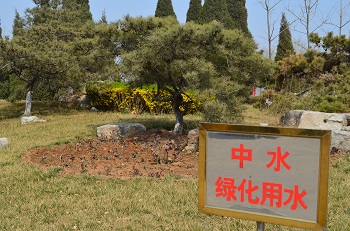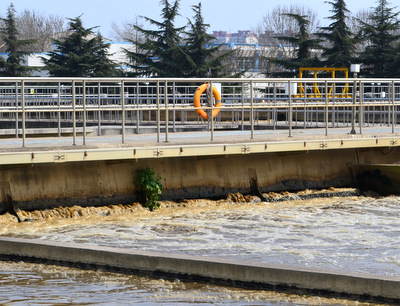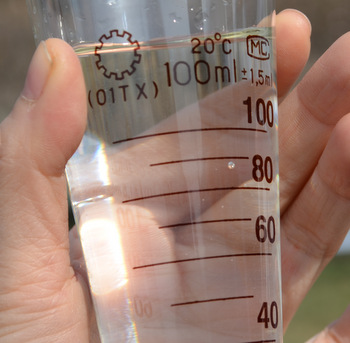 China Everbright Water's Jinan Licheng reusable water project is a BOO investment with daily wastewater treatment capacity of 42,000 cubic meters.
China Everbright Water's Jinan Licheng reusable water project is a BOO investment with daily wastewater treatment capacity of 42,000 cubic meters.
Hankore's plant was of sizable capacity while the China Everbright facilities impressed as being technically more advanced.
 Non-potable reclaimed water is used to irrigate gardens at the Jinan Licheng Reusable Water Facility.
Non-potable reclaimed water is used to irrigate gardens at the Jinan Licheng Reusable Water Facility.
In 2013 and 2014, China Everbright's Jinan plants won accolades for having the highest standards among treatment plants in 36 key PRC cities appraised by the international water fraternity.
We also visited a plant owned by China Everbright Water that transformed wastewater into non-potable reclaimed water as well as a waste-to-energy plant owned by China Everbright International.
Jinan Licheng Reusable Water Facility
The walkways of China Everbright Water's Jinan Licheng Reusable Water Facility is the first plant I have visited that is littered with petals of spring blooms.
 At China Everbright Water's Jinan Licheng water recycling project, grade 1A wastewater discharge (above) is recycled into non-potable reclaimed water.
At China Everbright Water's Jinan Licheng water recycling project, grade 1A wastewater discharge (above) is recycled into non-potable reclaimed water.

Post-treatment, non-potable reclaimed water is of a clear transparent quality and supplied to Huaneng Jinan Huangtai Power as industrial cooling water.
It uses the post-treatment non-potable reclaimed water to irrigate these plants as a test of water safety!
Every day, the workers at this facility eat fresh vegetables harvested from the facility's own gardens.
Numerous flowering almond trees provide staff with fresh nuts.
An ability to reclaim wastewater into water suitable for agricultural irrigation is a prelude to the ability for potable water supply.
"We are looking into the provision of fresh water piped to households," said Dr Wang.
"We will try to foray into cities that will provide economies of scale for such projects.
"However, such projects are socially more sensitive as tariffs for fresh water supply is borne by householders, unlike tariffs for wastewater treatment which are borne by the authorities."







